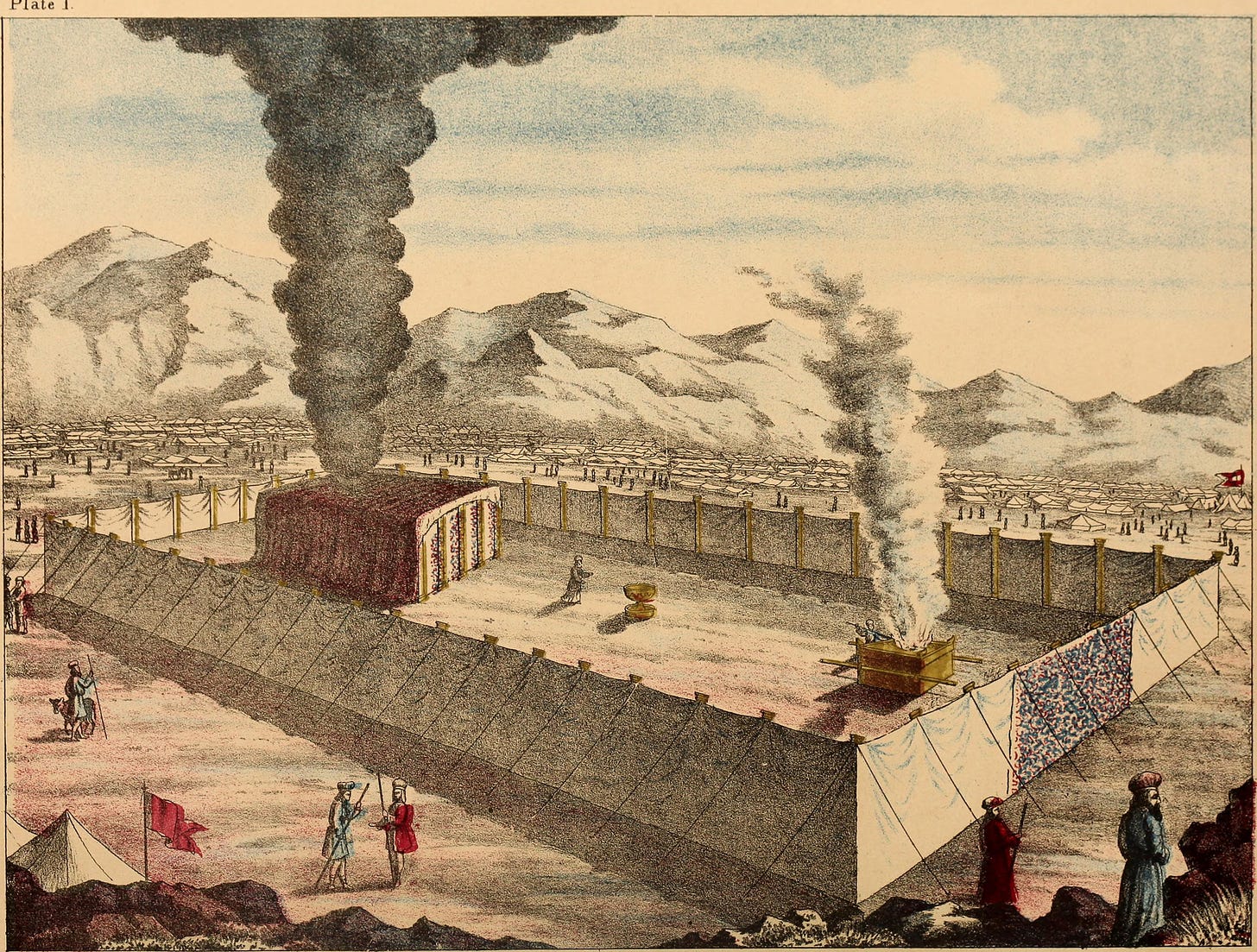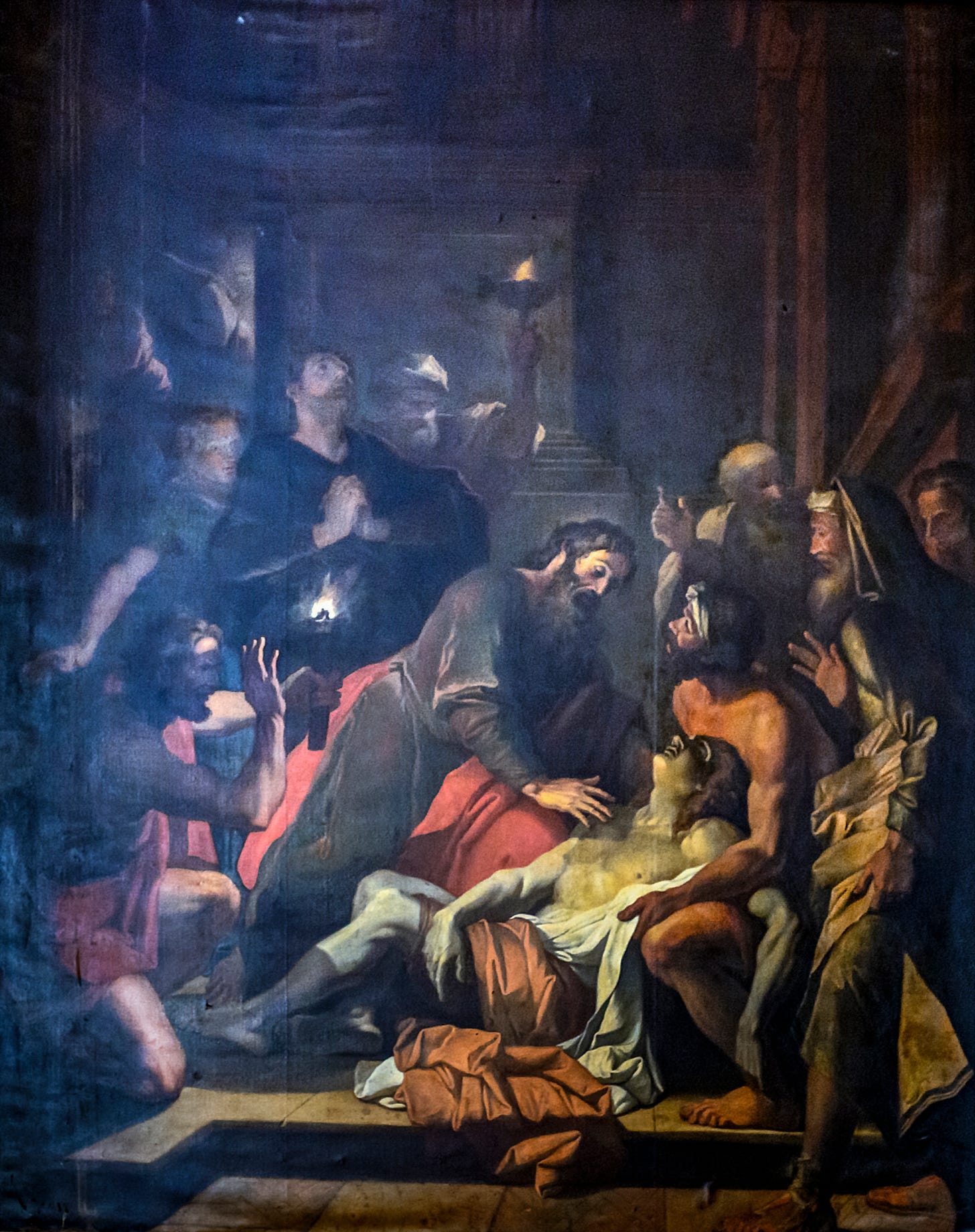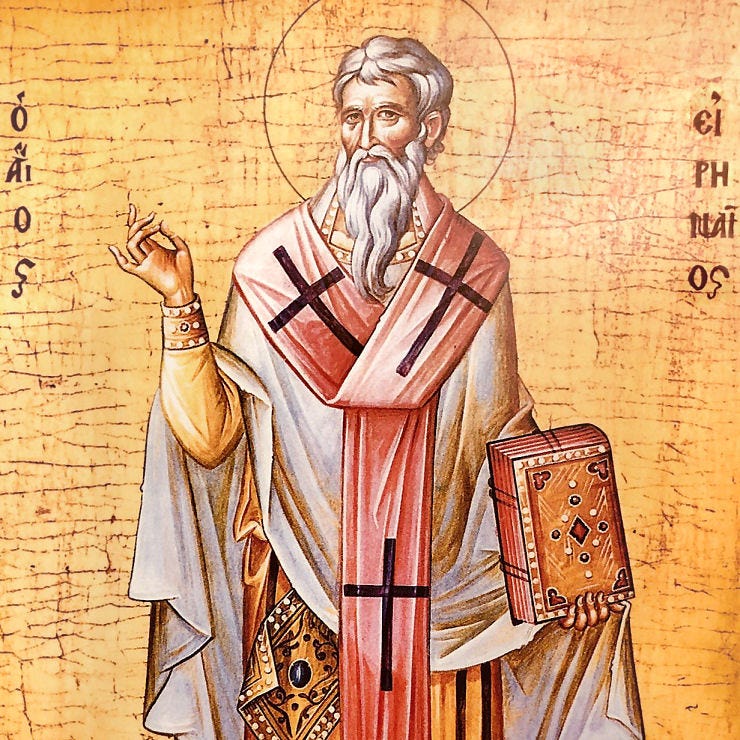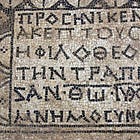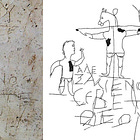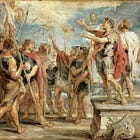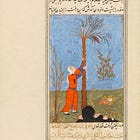Did Constantine Change the Sabbath? 43 Explosive Pre-Constantine Early Church Quotes That Debunk Seventh-Day Sabbatarianism
Did the Early Church Gather on Saturdays Until Emperors and Popes Changed God's Law?
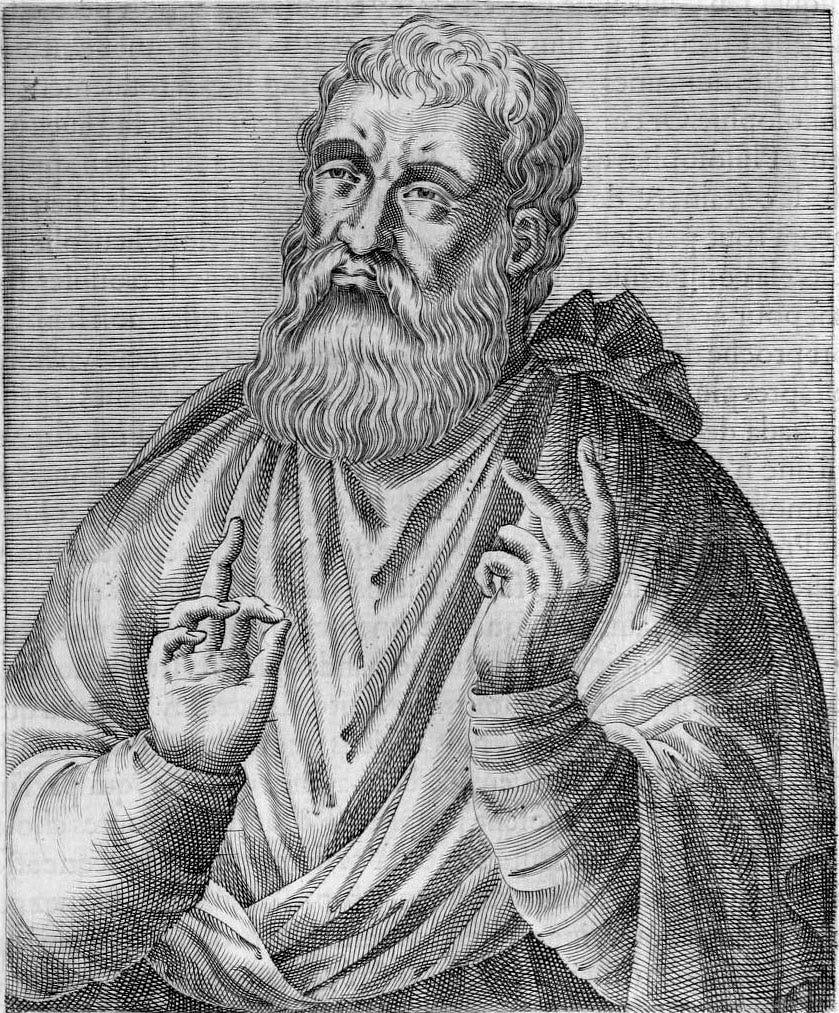
Find us on Medium.com
Or X
Or Insta:
instagram.com/streettheologianapologetics/
1. Colossians 2:16-17- Let no one judge you concerning Sabbaths: Sabbath is a shadow, Christ is the Substance
2. Romans 14:5-6a- Be convinced in your own mind whether you esteem all days alike or not
3. Galatians 3:16-24- Mosaic law is a temporary guardian until Christ, the True Offspring
4. Galatians 4:9-11- Observing special days is weak and worthless
5. Hebrews 4:1-11- Sabbath rest fulfilled in Christ and accessible today
6. Acts 20:7- First day of the week: The only day explicitly mentioned in Acts as the day Christians gathered to break bread
7. 1 Corinthians 16:1-2- First day of the week: Planned giving
8. Revelation 1:10- John’s Lord’s Day vision
9. Matthew 11:28-29- Jesus gives true rest fulfilling the Sabbath
10. John 5:16-18- Jesus is Lord of the Sabbath and, like God, did not stop working since creation
11. Acts 15:28-29- The early church didn’t expect new Gentile believers to follow the Sabbath
12. 1 Corinthians 6:9-11- List of people who will not inherit the kingdom of God does not include people who do not keep the Sabbath
13. Galatians 5:19-21- List of works of the flesh does not include failing to keep the Sabbath
14. Galatians 6:2- Christians are called to fulfill the law of Christ, not Moses
15. 1 Timothy 1:8-11- List of lawless and disobedient people does not include people who do not keep the Sabbath
16. 1 John 3:23-24- The commandments of Jesus include things not in the 10 commandments
17. Revelation 21:7-8- List of people who will be in the lake of fire does not include people who did not keep the Sabbath
18. Revelation 22:14-15- List of people outside heaven’s gates does not include people who did not keep the Sabbath
19. Didache c.70-120 AD - Potentially the earliest Christian document outside the New Testament- Gather on the Lord’s Day (literally the Greek word for Sunday)
20. Ignatius of Antioch c.110 AD- Epistle to the Magnesians- No longer keeping the Sabbath but following the Lord’s Day
21. Epistle of Barnabas c.70-135 AD- Sabbaths abolished and replaced with law of Christ- ch.2
22. Epistle of Barnabas - Christians keep the eighth day (Sunday) to celebrate Christ’s resurrection- ch.15
23. Letter to Diognetus c.130-200 AD- Legalistic Sabbath observance is folly- ch.4
24. Justin Martyr c.150 AD- Sunday is the day on which Christians hold their common assembly- First Apology ch.67
25. Justin Martyr c. 160 AD - Law at Horeb (10 Commandments- Deut. 5:2-5) replaced with Christ’s law- Dialogue with Trypho ch.11
26. Justin Martyr- Christians now keep the perpetual Sabbath as opposed to the weekly Sabbath- Dialogue with Trypho ch. 12
27. Justin Martyr- Christians follow a new Lawgiver and Sabbath observance is for those with hard hearts- Dialogue with Trypho ch. 18
28. Justin Martyr c.160 AD- Weak-minded people who keep the Sabbath should still be accepted as brothers if their hope is in Jesus, despite not being encouraged to keep the Sabbath- Dialogue with Trypho ch.47
29. Irenaeus of Lyon c. 180 AD- Christians keep the perpetual Sabbath rather than one-day weekly rest- Apostolic Preaching
30. Irenaeus c.180 AD- The Sabbath was a foreshadowing of the eternal Sabbath- Against Heresies, Book 4, Chapter 16, Section 1
31. Irenaeus c.180 AD- Sabbath keeping does not justify you and Abraham was God’s friend before keeping the Sabbath or being circumcised-Against Heresies, Book 4, Chapter 16, Section 2
32. Clement of Alexandria c.180-215 AD- Keeping the Lord’s day is about glorifying the resurrection in oneself- The Writings of Clement of Alexandria
33. Tertullian writing in Carthage c.197 AD- Christians worship on Sunday but not out of sun worship just as Jews who worship on Saturday do not worship Saturn- Apology ch.16
34. Tertullian c.203-212 AD- The Sabbath and circumcision do not still need to be observed as a balm of salvation- Answer to the Jews ch.2
35. Tertullian c.203-212 AD- The temporal weekly Sabbath foreshadowed the eternal Sabbath in Jesus- Answer to the Jews ch.4
36. Origen c.246 AD- Paul repudiated and frequently criticised Sabbath observance- Commentary on Romans
37. Origen c.248 AD- Christians do not need to observe special days or festivals- Contra Celsus- Book 8, Chapter 22
38. Cyprian of Carthage c.250 AD- The Lord’s day is the eighth day- Epistle 58
39. Victorinus of Pettau c.290-300 AD- Seventh-day Sabbath observance has been abolished- On the Creation of the World
40. Peter of Alexandria c.306 AD- The Lord’s Day celebrates the day Christ rose (first day of the week)- Canon 15
41. Eusebius of Caesarea c. 311 AD- The Lord’s Day is the day Christ rose from the dead and is different to the Sabbath - Proof of the Gospel
42. Eusebius of Caesarea c.312-324 AD - Christians do not care about observing Sabbaths- Church History Book I, Chapter 4, Section 8
43. Eusebius of Caesarea- The Lord’s Day is about celebrating Christ’s resurrection and is a different day to the Sabbath-Church History Book III, Chapter 27, Section 5
The likes of Seventh Day Adventists and members of Hebrew Roots congregations will frequently allege that early Christians gathered on Saturdays weekly until Emperor Constantine or a later Roman Pope changed the Sabbath to Sunday.
Note the following from sabbathtruth.com:
When Constantine pressed his pagan hordes into the church they were observing the day of the sun for their adoration of the sun god. It was their special holy day. In order to make it more convenient for them to make the change to the new religion, Constantine accepted their day of worship, Sunday, instead of the Christian Sabbath which had been observed by Jesus and His disciples…Those early Christians, feeling that the Jews should not be followed any more than necessary, were ready to swing away from the Sabbath which was kept by the Jews.
Sabbath Perpetuated, Not Merely Changed
Yet, a large number of primary sources indicate that the early church kept the “perpetual Sabbath” fulfilled in Christ and that the first day of the week became the primary day for Christian gatherings well before Constantine.
The Sabbath was perpetuated rather than having a day change. The first day of the week became a day of celebration, not a legalistic replacement of the Sabbath.
Constantine
It is true that Constantine decreed in 321 “the venerable day of the sun” should be a day of rest, however, to claim all Christians strictly observed a seventh-day Sabbath before this or that Sunday held no significance to Christians prior to this date is false.
Now let’s get into the primary sources..
1-8: New Testament Passages on the Sabbath, Days, Rest, and Worship: Sabbath as Shadow, not Substance
1. Colossians 2:16-17- Let no one judge you concerning Sabbaths: Sabbath is a shadow, Christ is the Substance
Therefore let no one pass judgment on you in questions of food and drink, or with regard to a festival or a new moon or a Sabbath. 17 These are a shadow of the things to come, but the substance belongs to Christ.
Weekly or festival Sabbath?
Some try and wiggle out of the conclusion of this verse by claiming it refers to Sabbaths linked to festivals, rather than the weekly Sabbath.
This fails to take into consideration:
The Sabbath was frequently mentioned hand in hand with the new moon in the Old Testament (eg. 2 Kings 4:23, Lam. 2:6, Hos. 2:11, Is. 1:13, Is. 66:23).
In Leviticus 23, God outlines “these are the appointed feasts of the LORD” (Lev. 23:2) and commences with talking about the weekly Sabbath (23:3), followed by the Passover (23:4–8), Firstfruits (23:9–14), Festival of Weeks (23:15–22), Trumpets (23:23–25), Day of Atonement (23:26–32), Feast of Booths (23:33–44). The Sabbath was included as a festival.
Hebrews is a book full of types and shadows and dedicates an entire chapter to the Sabbath, consistent with Paul’s claim in Colossians 2:16–17
2. Romans 14:5-6a- Be convinced in your own mind whether you esteem all days alike or not
One person esteems one day as better than another, while another esteems all days alike. Each one should be fully convinced in his own mind. 6 The one who observes the day, observes it in honor of the Lord.
This passage emphasises whether or not someone holds one day over another should not be a cause of division, indicating it is not an issue of morality or holiness. Sabbath keeping is non-essential.
3. Galatians 3:16-24- Mosaic law is a temporary guardian until Christ, the True Offspring
Now the promises were made to Abraham and to his offspring. It does not say, “And to offsprings,” referring to many, but referring to one, “And to your offspring,” who is Christ. 17 This is what I mean: the law, which came 430 years afterward, does not annul a covenant previously ratified by God, so as to make the promise void. 18 For if the inheritance comes by the law, it no longer comes by promise; but God gave it to Abraham by a promise.
19 Why then the law? It was added because of transgressions, until the offspring should come to whom the promise had been made, and it was put in place through angels by an intermediary. 20 Now an intermediary implies more than one, but God is one.
21 Is the law then contrary to the promises of God? Certainly not! For if a law had been given that could give life, then righteousness would indeed be by the law. 22 But the Scripture imprisoned everything under sin, so that the promise by faith in Jesus Christ might be given to those who believe.
23 Now before faith came, we were held captive under the law, imprisoned until the coming faith would be revealed. 24 So then, the law was our guardian until Christ came, in order that we might be justified by faith.
Evidently, the Mosaic covenant which came 430 years after Abraham, was a temporary guardian until, Christ, the promised offspring would come. However, it is not an excuse for immorality, for we are now under the law of Christ (Gal. 6:2) and followers of Christ produce the fruits of the Spirit rather than the works of the flesh (Gal. 5:19-23).
Interestingly, the Sabbath was the seal of the Mosaic covenant (Ex. 31:16). In suzerainty vassal treaties it was not uncommon for the seal to be found near the middle of the covenant and this is exactly what we find with the Sabbath. As such, the Sabbath is of a different category to the other commandments.
To insist on Sabbatarianism is to attempt to resurrect a covenant sign that has passed away with its covenant (cf. Heb. 8:13).
4. Galatians 4:9-11- Observing special days is weak and worthless
But now that you have come to know God, or rather to be known by God, how can you turn back again to the weak and worthless elementary principles of the world, whose slaves you want to be once more? 10 You observe days and months and seasons and years! 11 I am afraid I may have labored over you in vain.
Going back to dividing over legalistically observing days (like Sabbaths) or festivals is a sign one is turning back to “weak and worthless” principles. Yet, some Sabbatarians like SDAs, would have us believe, observing a day is what distinguishes a true believers from a false one at the end of time.
5. Hebrews 4:1-11- Sabbath rest fulfilled in Christ and accessible today
Therefore, while the promise of entering his rest still stands, let us fear lest any of you should seem to have failed to reach it. 2 For good news came to us just as to them, but the message they heard did not benefit them, because they were not united by faith with those who listened. 3 For we who have believed enter that rest, as he has said,
“As I swore in my wrath,
‘They shall not enter my rest,’”
although his works were finished from the foundation of the world. 4 For he has somewhere spoken of the seventh day in this way: “And God rested on the seventh day from all his works.” 5 And again in this passage he said,
“They shall not enter my rest.”
6 Since therefore it remains for some to enter it, and those who formerly received the good news failed to enter because of disobedience, 7 again he appoints a certain day, “Today,” saying through David so long afterward, in the words already quoted,
“Today, if you hear his voice,
do not harden your hearts.”
8 For if Joshua had given them rest, God would not have spoken of another day later on. 9 So then, there remains a Sabbath rest for the people of God, 10 for whoever has entered God's rest has also rested from his works as God did from his.
11 Let us therefore strive to enter that rest, so that no one may fall by the same sort of disobedience.
How do we enter God’s rest according to this passage? By believing in Jesus (v.3). Moreover, this is something that is accessible “today” (v.7, 3:14) for all who believe.
In addition, God’s rest on the seventh day did not truly end, for the seventh day had no evening and morning unlike the other 6 days (Gen. 1-2), indicating it continued. This ongoing eternal rest is a spiritual reality fulfilled in Christ. As such there remains a Sabbath rest (Sabbatismos) for God’s people (v.9), which can be accessed today through believing.
Where do we see a chapter in Hebrews on moral commands like “do not murder” being fulfilled as a temporary shadow? Nowhere.
6. Acts 20:7- First day of the week: The only day explicitly mentioned in Acts as the day Christians gathered to break bread
On the first day of the week, when we were gathered together to break bread, Paul talked with them, intending to depart on the next day, and he prolonged his speech until midnight.
Some will argue Paul regularly went to the synagogues on the Sabbath (eg. Acts 18:4), yet this was for evangelistic purposes and Paul eventually got kicked out of the synagogues. Moreover, attending the synagogue on the Sabbath was a development of Second Temple Judaism rather than something that stemmed back to the Mosaic law when synagogues did not yet exist!
Where does Acts ever explicitly say they gathered together on the Sabbath to break bread? Nowhere! Sure they gathered day by day early on (Acts 2:46) but never does Luke make a thing of gathering on the Sabbath for breaking bread and the day by day gatherings took place in Jerusalem before persecution.
7. 1 Corinthians 16:1-2- First day of the week: Planned giving
Now concerning the collection for the saints: as I directed the churches of Galatia, so you also are to do. 2 On the first day of every week, each of you is to put something aside and store it up, as he may prosper, so that there will be no collecting when I come.
If everyone was gathering on Saturdays instead, why not store money into a common treasury on Saturdays so no collections need to happen when Paul comes?
8. Revelation 1:10- John’s Lord’s Day vision
I was in the Spirit on the Lord's day, and I heard behind me a loud voice like a trumpet.
Early historical context shows John was referring to the first day of the week here, not the Sabbath.
9-10: Jesus’ Call to Rest and Lordship Over the Sabbath
9. Matthew 11:28-29- Jesus gives true rest fulfilling the Sabbath
Come to me, all who labor and are heavy laden, and I will give you rest. 29 Take my yoke upon you, and learn from me, for I am gentle and lowly in heart, and you will find rest for your souls. 30 For my yoke is easy, and my burden is light.
Here we see Jesus offers deep rest for the soul- something the Sabbath foreshadowed.
10. John 5:16-18- Jesus is Lord of the Sabbath and, like God, did not stop working since creation
And this was why the Jews were persecuting Jesus, because he was doing these things on the Sabbath. 17 But Jesus answered them, “My Father is working until now, and I am working.” 18 This was why the Jews were seeking all the more to kill him, because not only was he breaking the Sabbath, but he was even calling God his own Father, making himself equal with God.
As mentioned in point 5, the seventh day in the creation account did not end- there was no morning or evening unlike the other 6 days. Jews in Jesus’ day would say God could “work” without breaking the Sabbath, by sustaining the universe on the Sabbath day.
Here Jesus is showing He is God and also pointing to the deeper reality of the Sabbath beyond strict legalistic observance.
11-18: New Testament Ethical and Identity Passages Reflecting Christian Holiness- NONE Mention the Sabbath
These passages in isolation would not mean as much but when we consider them all together, they provide a devastating blow to the notion what will distinguish true believers from unbelievers is whether or not they observe the Sabbath.
11. Acts 15:28-29- The early church didn’t expect new Gentile believers to follow the Sabbath
For it has seemed good to the Holy Spirit and to us to lay on you no greater burden than these requirements: 29 that you abstain from what has been sacrificed to idols, and from blood, and from what has been strangled, and from sexual immorality. If you keep yourselves from these, you will do well. Farewell.
12. 1 Corinthians 6:9-11- List of people who will not inherit the kingdom of God does not include people who do not keep the Sabbath
Or do you not know that the unrighteous will not inherit the kingdom of God? Do not be deceived: neither the sexually immoral, nor idolaters, nor adulterers, nor men who practice homosexuality, 10 nor thieves, nor the greedy, nor drunkards, nor revilers, nor swindlers will inherit the kingdom of God. 11 And such were some of you. But you were washed, you were sanctified, you were justified in the name of the Lord Jesus Christ and by the Spirit of our God.
13. Galatians 5:19-21- List of works of the flesh does not include failing to keep the Sabbath
Now the works of the flesh are evident: sexual immorality, impurity, sensuality, 20 idolatry, sorcery, enmity, strife, jealousy, fits of anger, rivalries, dissensions, divisions, 21 envy, drunkenness, orgies, and things like these. I warn you, as I warned you before, that those who do such things will not inherit the kingdom of God.
14. Galatians 6:2- Christians are called to fulfill the law of Christ, not Moses
Bear one another's burdens, and so fulfill the law of Christ.
Remember as well, as per points 3 and 4, Paul argued the Mosaic law was a temporary guardian until Christ came and that observing special days was weak and worthless.
15. 1 Timothy 1:8-11- List of lawless and disobedient people does not include people who do not keep the Sabbath
Now we know that the law is good, if one uses it lawfully, 9 understanding this, that the law is not laid down for the just but for the lawless and disobedient, for the ungodly and sinners, for the unholy and profane, for those who strike their fathers and mothers, for murderers, 10 the sexually immoral, men who practice homosexuality, enslavers, liars, perjurers, and whatever else is contrary to sound doctrine, 11 in accordance with the gospel of the glory of the blessed God with which I have been entrusted.
16. 1 John 3:23-24- The commandments of Jesus include things not in the 10 commandments
And this is his commandment, that we believe in the name of his Son Jesus Christ and love one another, just as he has commanded us. 24 Whoever keeps his commandments abides in God, and God in him. And by this we know that he abides in us, by the Spirit whom he has given us.
Hence, when the New Testament refers to following the commands of Christ, it is fallacious to automatically assume that is a reference to the 10 commandments.
17. Revelation 21:7-8- List of people who will be in the lake of fire does not include people who did not keep the Sabbath
The one who conquers will have this heritage, and I will be his God and he will be my son. 8 But as for the cowardly, the faithless, the detestable, as for murderers, the sexually immoral, sorcerers, idolaters, and all liars, their portion will be in the lake that burns with fire and sulfur, which is the second death.”
18. Revelation 22:14-15- List of people outside heaven’s gates does not include people who did not keep the Sabbath
Blessed are those who wash their robes, so that they may have the right to the tree of life and that they may enter the city by the gates. 15 Outside are the dogs and sorcerers and the sexually immoral and murderers and idolaters, and everyone who loves and practices falsehood.
19-43: Early Christian Witness Outside the New Testament
19. Didache c.70-120 AD - Potentially the earliest Christian document outside the New Testament- Gather on the Lord’s Day (literally the Greek word for Sunday)
But every Lord's day gather yourselves together, and break bread, and give thanksgiving after having confessed your transgressions, that your sacrifice may be pure.
In Greek here, the Lord’s Day is kuriakin humeran, which is literally where the Greek word for Sunday, kuriaki, comes from!

20. Ignatius of Antioch c.110 AD- Epistle to the Magnesians- No longer keeping the Sabbath but following the Lord’s Day
If, therefore, those who were brought up in the ancient order of things have come to the possession of a new hope, no longer observing the Sabbath, but living in the observance of the Lord's Day, on which also our life has sprung up again by Him and by His death.
While some works attributed to Ignatius are considered forgeries, his Epistle to the Magnesians is broadly considered one of his seven authentic letters.
21. Epistle of Barnabas c.70-135 AD- Sabbaths abolished and replaced with law of Christ- ch.2
Incense is a vain abomination unto Me, and your new moons and sabbaths I cannot endure. He has therefore abolished these things, that the new law of our Lord Jesus Christ, which is without the yoke of necessity, might have a human oblation.
22. Epistle of Barnabas - Christians keep the eighth day (Sunday) to celebrate Christ’s resurrection- ch.15
Further, He says to them, Your new moons and your Sabbath I cannot endure. Isaiah 1:13 You perceive how He speaks: Your present Sabbaths are not acceptable to Me, but that is which I have made, [namely this,] when, giving rest to all things, I shall make a beginning of the eighth day, that is, a beginning of another world. Wherefore, also, we keep the eighth day with joyfulness, the day also on which Jesus rose again from the dead. And when He had manifested Himself, He ascended into the heavens.
23. Letter to Diognetus c.130-200 AD- Legalistic Sabbath observance is folly- ch.4
But as to their scrupulosity concerning food, and their superstition as respects the Sabbaths, and their boasting about circumcision, and their fancies about fasting and the new moons, which are utterly ridiculous and unworthy of notice — I do not think that you require to learn anything from me. For, to accept some of those things which have been formed by God for the use of men as properly formed, and to reject others as useless and redundant — how can this be lawful? And to speak falsely of God, as if He forbade us to do what is good on the Sabbath-days — how is not this impious? And to glory in the circumcision of the flesh as a proof of election, and as if, on account of it, they were specially beloved by God — how is it not a subject of ridicule? And as to their observing months and days, Galatians 4:10 as if waiting upon the stars and the moon, and their distributing, according to their own tendencies, the appointments of God, and the vicissitudes of the seasons, some for festivities, and others for mourning — who would deem this a part of divine worship, and not much rather a manifestation of folly? I suppose, then, you are sufficiently convinced that the Christians properly abstain from the vanity and error common [to both Jews and Gentiles], and from the busybody spirit and vain boasting of the Jews; but you must not hope to learn the mystery of their peculiar mode of worshipping God from any mortal.
Notice here, Mathetes clearly groups the Sabbath with the special days Paul mentions in Gal. 4:10- the very things Paul called weak and worthless.
24. Justin Martyr c.150 AD- Sunday is the day on which Christians hold their common assembly- First Apology ch.67
But Sunday is the day on which we all hold our common assembly, because it is the first day on which God, having wrought a change in the darkness and matter, made the world; and Jesus Christ our Saviour on the same day rose from the dead.
For He was crucified on the day before that of Saturn (Saturday); and on the day after that of Saturn, which is the day of the Sun, having appeared to His apostles and disciples, He taught them these things, which we have submitted to you also for your consideration.
25. Justin Martyr c.160 AD - Law at Horeb (10 Commandments- Deut. 5:2-5) replaced with Christ’s law- Dialogue with Trypho ch.11
For the law promulgated on Horeb is now old, and belongs to yourselves alone; but this is for all universally. Now, law placed against law has abrogated that which is before it, and a covenant which comes after in like manner has put an end to the previous one; and an eternal and final law — namely, Christ — has been given to us, and the covenant is trustworthy, after which there shall be no law, no commandment, no ordinance.
26. Justin Martyr- Christians now keep the perpetual Sabbath as opposed to the weekly Sabbath- Dialogue with Trypho ch. 12
The new law requires you to keep perpetual sabbath, and you, because you are idle for one day, suppose you are pious, not discerning why this has been commanded you: and if you eat unleavened bread, you say the will of God has been fulfilled. The Lord our God does not take pleasure in such observances: if there is any perjured person or a thief among you, let him cease to be so; if any adulterer, let him repent; then he has kept the sweet and true sabbaths of God. If any one has impure hands, let him wash and be pure.
27. Justin Martyr- Christians follow a new Lawgiver and Sabbath observance is for those with hard hearts- Dialogue with Trypho ch. 18
For since you have read, O Trypho, as you yourself admitted, the doctrines taught by our Saviour, I do not think that I have done foolishly in adding some short utterances of His to the prophetic statements. Wash therefore, and be now clean, and put away iniquity from your souls, as God bids you be washed in this laver, and be circumcised with the true circumcision. For we too would observe the fleshly circumcision, and the Sabbaths, and in short all the feasts, if we did not know for what reason they were enjoined you — namely, on account of your transgressions and the hardness of your hearts. For if we patiently endure all things contrived against us by wicked men and demons, so that even amid cruelties unutterable, death and torments, we pray for mercy to those who inflict such things upon us, and do not wish to give the least retort to any one, even as the new Lawgiver commanded us: how is it, Trypho, that we would not observe those rites which do not harm us— I speak of fleshly circumcision, and Sabbaths, and feasts?
28. Justin Martyr c.160 AD- Weak-minded people who keep the Sabbath should still be accepted as brothers if their hope is in Jesus, despite not being encouraged to keep the Sabbath- Dialogue with Trypho ch.47
But if some, through weak-mindedness, wish to observe such institutions as were given by Moses, from which they expect some virtue, but which we believe were appointed by reason of the hardness of the people's hearts, along with their hope in this Christ, and [wish to perform] the eternal and natural acts of righteousness and piety, yet choose to live with the Christians and the faithful, as I said before, not inducing them either to be circumcised like themselves, or to keep the Sabbath, or to observe any other such ceremonies, then I hold that we ought to join ourselves to such, and associate with them in all things as kinsmen and brethren.
This echoes Paul’s teaching in Romans 14:5-6a outlined in point 2.
29. Irenaeus of Lyon c.180 AD- Christians keep the perpetual Sabbath rather than a weekly one-day rest- Apostolic Preaching
And there will be no command to remain idle for one day of rest, to him who perpetually keeps Sabbath, that is to say, who in the temple of God, which is man’s body, does service to God, and in every hour works righteousness.
30. Irenaeus c.180 AD- The Sabbath was a foreshadowing of the eternal Sabbath- Against Heresies, Book 4, Chapter 16, Section 1
Moreover, we learn from the Scripture itself, that God gave circumcision, not as the completer of righteousness, but as a sign.. This same does Ezekiel the prophet say with regard to the Sabbaths: Also I gave them My Sabbaths, to be a sign between Me and them, that they might know that I am the Lord, that sanctify them. Ezekiel 20:12 And in Exodus, God says to Moses: And you shall observe My Sabbaths; for it shall be a sign between Me and you for your generations. Exodus 21:13 These things, then, were given for a sign; but the signs were not unsymbolical, that is, neither unmeaning nor to no purpose, inasmuch as they were given by a wise Artist; but the circumcision after the flesh typified that after the Spirit. For we, says the apostle, have been circumcised with the circumcision made without hands. Colossians 2:11 And the prophet declares, Circumcise the hardness of your heart. But the Sabbaths taught that we should continue day by day in God's service. For we have been counted, says the Apostle Paul, all the day long as sheep for the slaughter; Romans 8:36 that is, consecrated [to God], and ministering continually to our faith, and persevering in it, and abstaining from all avarice, and not acquiring or possessing treasures upon earth. Matthew 6:19 Moreover, the Sabbath of God (requietio Dei), that is, the kingdom, was, as it were, indicated by created things; in which [kingdom], the man who shall have persevered in serving God (Deo assistere) shall, in a state of rest, partake of God's table.
31. Irenaeus c. 180 AD- Sabbath keeping does not justify you and Abraham was God’s friend before keeping the Sabbath or being circumcised-Against Heresies, Book 4, Chapter 16, Section 2
And that man was not justified by these things, but that they were given as a sign to the people, this fact shows — that Abraham himself, without circumcision and without observance of Sabbaths, believed God, and it was imputed unto him for righteousness; and he was called the friend of God.
It is hard to see how this is true if Sabbath observance is the seal of God as SDAs would say.
32. Clement of Alexandria c.180-215 AD- Keeping the Lord’s day is about glorifying the resurrection in oneself- The Writings of Clement of Alexandria
He, in fulfilment of the precept, according to the Gospel, keeps the Lord’s day, when he abandons an evil disposition, and assumes that of the Gnostic, glorifying the Lord’s resurrection in himself.
Here Clement of Alexandria ties keeping the Lord’s day not to Sabbath keeping but glorifying the resurrection in oneself. This makes a lot more sense if the Lord’s Day is the day of Christ’s resurrection.
33. Tertullian writing in Carthage c.197 AD- Christians worship on Sunday but not out of sun worship just as Jews who worship on Saturday do not worship Saturn- Apology ch.16
But you, many of you, also under pretence sometimes of worshipping the heavenly bodies, move your lips in the direction of the sunrise. In the same way, if we devote Sun-day to rejoicing, from a far different reason than Sun-worship, we have some resemblance to those of you who devote the day of Saturn to ease and luxury, though they too go far away from Jewish ways, of which indeed they are ignorant.
34. Tertullian c.203-212 AD- The Sabbath and circumcision do not still need to be observed as a balm of salvation- Answer to the Jews ch.2
In fine, let him who contends that the Sabbath is still to be observed as a balm of salvation, and circumcision on the eighth day because of the threat of death, teach us that, for the time past, righteous men kept the Sabbath, or practised circumcision, and were thus rendered friends of God. For if circumcision purges a man since God made Adam uncircumcised, why did He not circumcise him, even after his sinning, if circumcision purges? At all events, in settling him in paradise, He appointed one uncircumcised as colonist of paradise. Therefore, since God originated Adam uncircumcised, and inobservant of the Sabbath, consequently his offspring also, Abel, offering Him sacrifices, uncircumcised and inobservant of the Sabbath, was by Him commended; while He accepted what he was offering in simplicity of heart, and reprobated the sacrifice of his brother Cain, who was not rightly dividing what he was offering. Noah also, uncircumcised — yes, and inobservant of the Sabbath— God freed from the deluge. For Enoch, too, most righteous man, uncircumcised and inobservant of the Sabbath, He translated from this world; who did not first taste death, in order that, being a candidate for eternal life, he might by this time show us that we also may, without the burden of the law of Moses, please God. Melchizedek also, the priest of the most high God, uncircumcised and inobservant of the Sabbath, was chosen to the priesthood of God. Lot, withal, the brother of Abraham, proves that it was for the merits of righteousness, without observance of the law, that he was freed from the conflagration of the Sodomites.
If the Sabbath is not needed as a balm, or evidence, of salvation, how can observing it be a sign of true salvation?
Tertullian is clearly grouping Sabbath keeping and circumcision as unnecessary works of the law.
35. Tertullian c.203-212 AD- The temporal weekly Sabbath foreshadowed the eternal Sabbath in Jesus- Answer to the Jews ch.4
For the Jews say, that from the beginning God sanctified the seventh day, by resting on it from all His works which He made; and that thence it was, likewise, that Moses said to the People: Remember the day of the sabbaths, to sanctify it: every servile work you shall not do therein, except what pertains unto life. Whence we (Christians) understand that we still more ought to observe a sabbath from all servile work always, and not only every seventh day, but through all time. And through this arises the question for us, what sabbath God willed us to keep? For the Scriptures point to a sabbath eternal and a sabbath temporal. For Isaiah the prophet says, Your sabbaths my soul hates; Isaiah 1:13 and in another place he says, My sabbaths you have profaned. Whence we discern that the temporal sabbath is human, and the eternal sabbath is accounted divine; concerning which He predicts through Isaiah: And there shall be, He says, month after month, and day after day, and sabbath after sabbath; and all flesh shall come to adore in Jerusalem, says the Lord; which we understand to have been fulfilled in the times of Christ, when all flesh — that is, every nation — came to adore in Jerusalem God the Father, through Jesus Christ His Son, as was predicted through the prophet: Behold, proselytes through me shall go unto You. Thus, therefore, before this temporal sabbath, there was withal an eternal sabbath foreshown and foretold; just as before the carnal circumcision there was withal a spiritual circumcision foreshown. In short, let them teach us, as we have already premised, that Adam observed the sabbath; or that Abel, when offering to God a holy victim, pleased Him by a religious reverence for the sabbath; or that Enoch, when translated, had been a keeper of the sabbath; or that Noah the ark-builder observed, on account of the deluge, an immense sabbath; or that Abraham, in observance of the sabbath, offered Isaac his son; or that Melchizedek in his priesthood received the law of the sabbath.
36. Origen c.246 AD- Paul repudiated and frequently criticised Sabbath observance- Commentary on Romans
The works which Paul repudiates and frequently criticizes are not the works of righteousness (opera iustitiae) which are commanded in the law, but those in which they boast who keep the law according to the flesh; that is, the circumcision of the flesh, the sacrificial rituals, the observance of Sabbaths and new moon festivals.
—Origen, Commentary on Romans 8.7.6, in Thomas, Paul’s “Works of the Law” in Second-Century Reception, 178–88; cf. Scheck, Origen and the History of Justification, 48–49.
37. Origen c.248 AD- Christians do not need to observe special days or festivals- Contra Celsus- Book 8, Chapter 22
If it be objected to us on this subject that we ourselves are accustomed to observe certain days, as for example the Lord's day, the Preparation, the Passover, or Pentecost, I have to answer, that to the perfect Christian, who is ever in his thoughts, words, and deeds serving his natural Lord, God the Word, all his days are the Lord's, and he is always keeping the Lord's day
38. Cyprian of Carthage c. 250 AD- The Lord’s day is the eighth day- Epistle 58
For in respect of the observance of the eighth day in the Jewish circumcision of the flesh, a sacrament was given beforehand in shadow and in usage; but when Christ came, it was fulfilled in truth. For because the eighth day, that is, the first day after the Sabbath, was to be that on which the Lord should rise again, and should quicken us, and give us circumcision of the spirit, the eighth day, that is, the first day after the Sabbath, and the Lord's day, went before in the figure; which figure ceased when by and by the truth came, and spiritual circumcision was given to us.
Christ’s resurrection brings the “circumcision of the spirit.” The Lord’s Day, therefore, signifies the new creation and eternal life inaugurated by the resurrection, replacing the old shadow of the Sabbath.
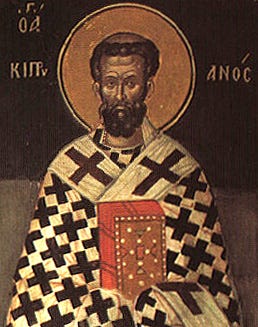
39. Victorinus of Pettau c.290-300 AD- Seventh-day Sabbath observance has been abolished- On the Creation of the World
This sixth day is called parasceve, that is to say, the preparation of the kingdom. For He perfected Adam, whom He made after His image and likeness. But for this reason He completed His works before He created angels and fashioned man, lest perchance they should falsely assert that they had been His helpers. On this day also, on account of the passion of the Lord Jesus Christ, we make either a station to God, or a fast. On the seventh day He rested from all His works, and blessed it, and sanctified it. On the former day we are accustomed to fast rigorously, that on the Lord's day we may go forth to our bread with giving of thanks. And let the parasceve become a rigorous fast, lest we should appear to observe any Sabbath with the Jews, which Christ Himself, the Lord of the Sabbath, says by His prophets that His soul hates; Isaiah 1:13-14 which Sabbath He in His body abolished.
40. Peter of Alexandria c.306 AD- The Lord’s Day celebrates the day Christ rose (first day of the week)- Canon 15
No one shall find fault with us for observing the fourth day of the week, and the preparation, on which it is reasonably enjoined us to fast according to the tradition. On the fourth day, indeed, because on it the Jews took counsel for the betrayal of the Lord; and on the sixth, because on it He himself suffered for us. But the Lord's day we celebrate as a day of joy, because on it He rose again, on which day we have received it for a custom not even to bow the knee.
41. Eusebius of Caesarea c. 311 AD- The Lord’s Day is the day Christ rose from the dead and is different to the Sabbath - Proof of the Gospel
And this was the day of His Resurrection from the dead, which they say, as being the one and only truly Holy Day and the Lord's Day, is better than any number of days as we ordinarily understand them, and better than the days set apart by the Mosaic Law for Feasts, New Moons and Sabbaths, which the Apostle teaches are the shadow of days and not days in reality. And this Lord's Day of our Saviour is alone said to shew its light not in every place but only in the courts of the Lord.
42. Eusebius of Caesarea c.312-324 AD - Christians do not care about observing Sabbaths- Church History Book I, Chapter 4, Section 8
They did not care about circumcision of the body, neither do we. They did not care about observing Sabbaths, nor do we. They did not avoid certain kinds of food, neither did they regard the other distinctions which Moses first delivered to their posterity to be observed as symbols; nor do Christians of the present day do such things. But they also clearly knew the very Christ of God; for it has already been shown that he appeared unto Abraham, that he imparted revelations to Isaac, that he talked with Jacob, that he held converse with Moses and with the prophets that came after.
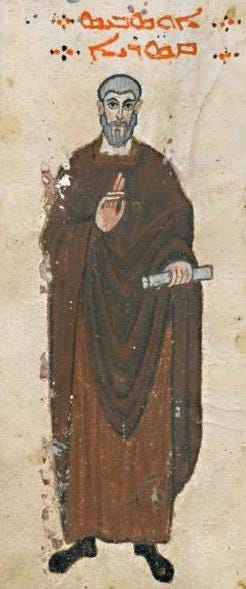
43. Eusebius of Caesarea- The Lord’s Day is about celebrating Christ’s resurrection and is a different day to the Sabbath- Church History Book III, Chapter 27, Section 5
The Sabbath and the rest of the discipline of the Jews they observed just like them, but at the same time, like us, they (the Ebionites) celebrated the Lord's days as a memorial of the resurrection of the Saviour.
The people who observed the Sabbath here are the Ebionites who elsewhere in this chapter are described as holding “poor and mean opinions concerning Christ.”
Conclusion: Discard Sabbatarian lies and find your true rest in Jesus
The historical evidence we have covered is extensive and clear- early Christians did not strictly observe a weekly seventh-day Sabbath but saw the Sabbath as perpetuated in Christ. Sunday emerged as a day of gathering to celebrate Christ’s resurrection, rather than a legalistic Sabbath replacement.
The temporary, weekly, seventh-day Sabbath was a shadow of the eternal Sabbath Christ would usher in bringing rest to the souls of those who believe in Him. Through His resurrection, Jesus opened access to the unending Sabbath rest foreshadowed in Genesis, the only day with no evening or morning, inviting all who trust in Him to enter that rest forever.




